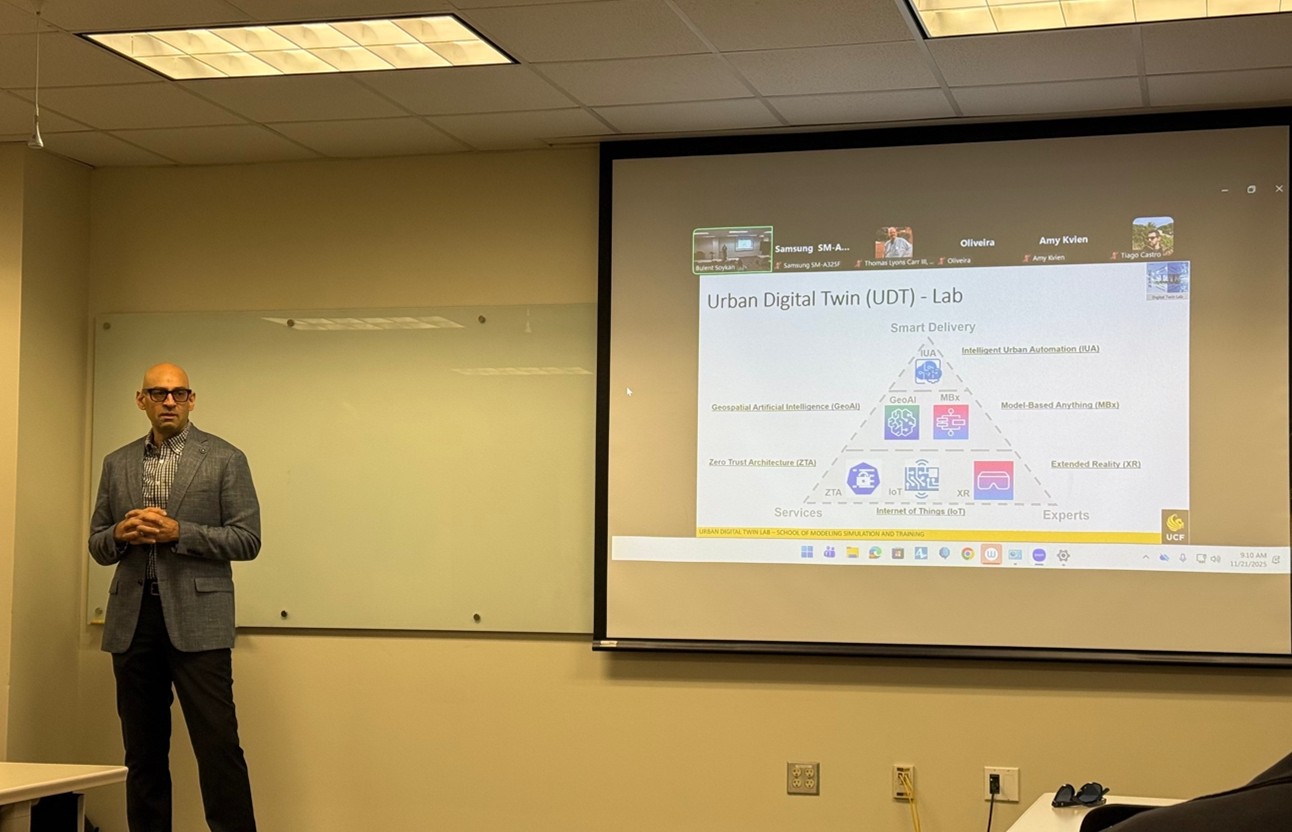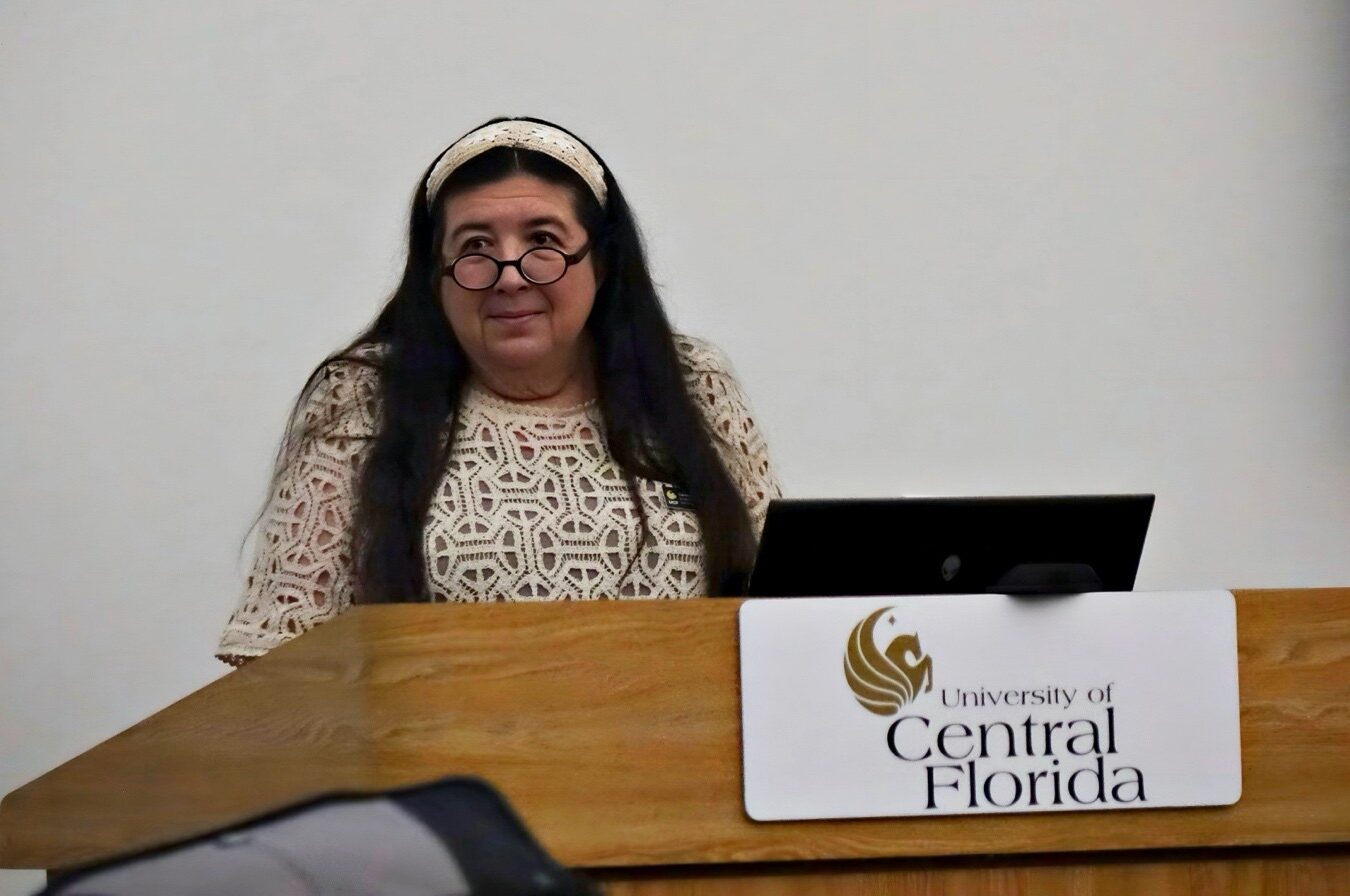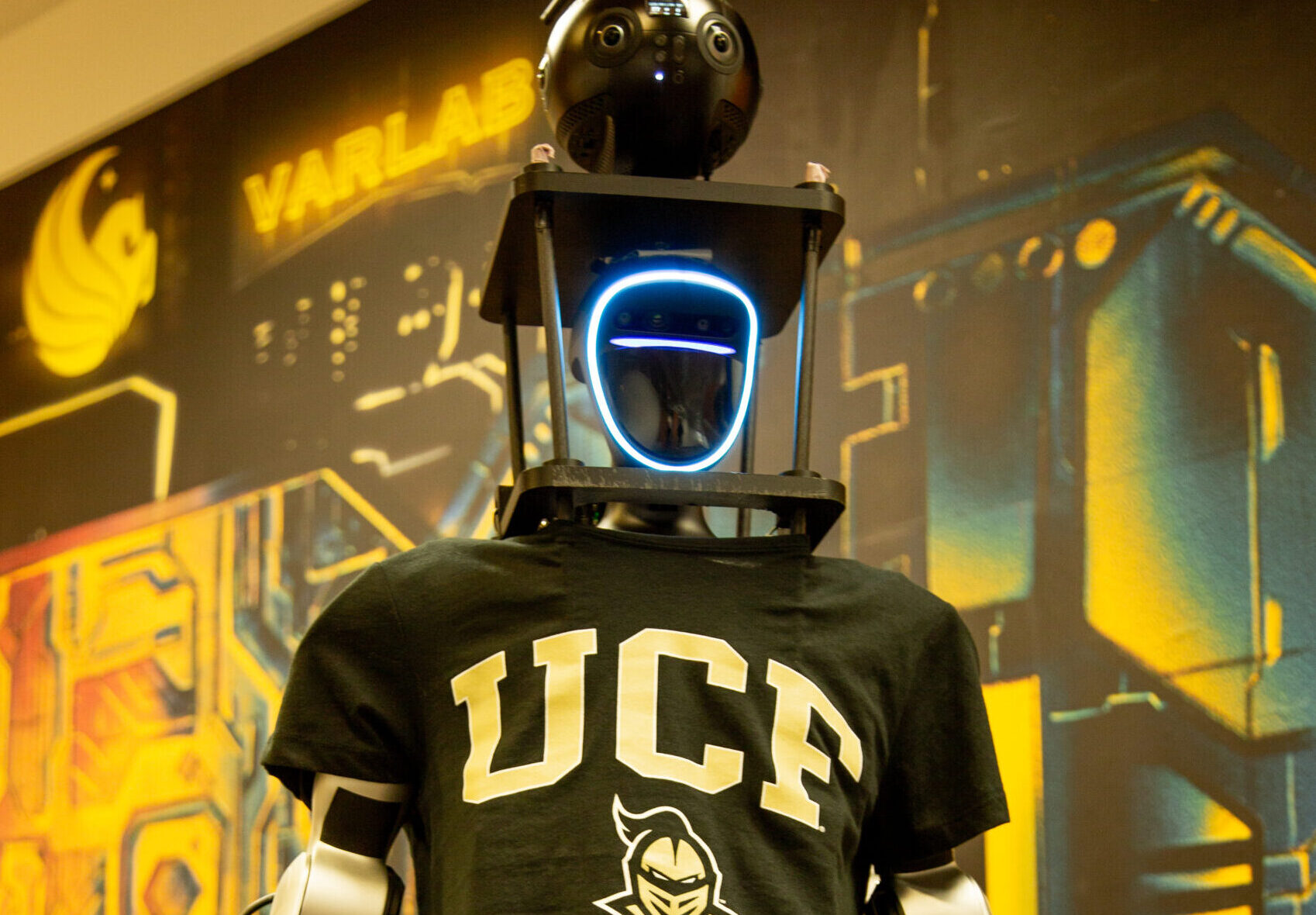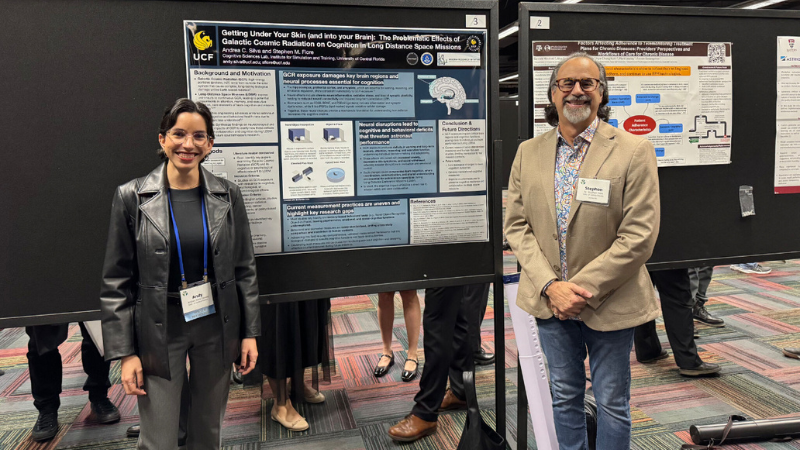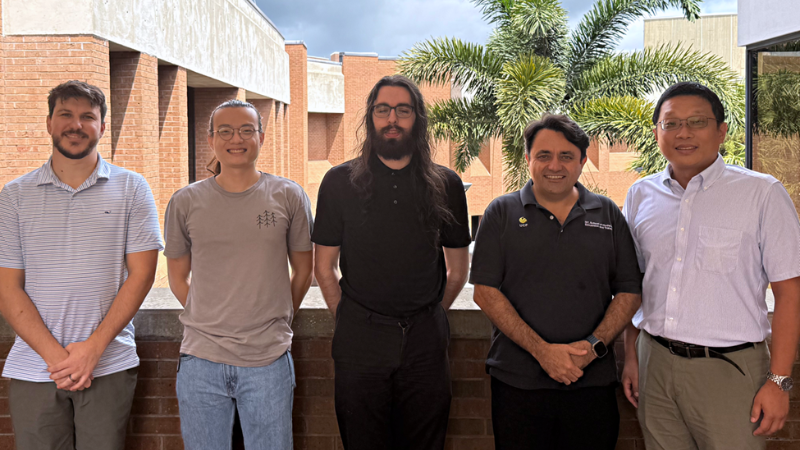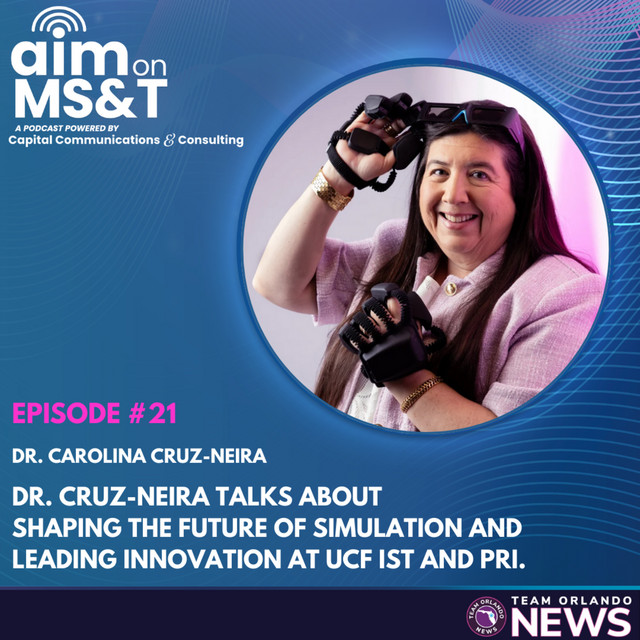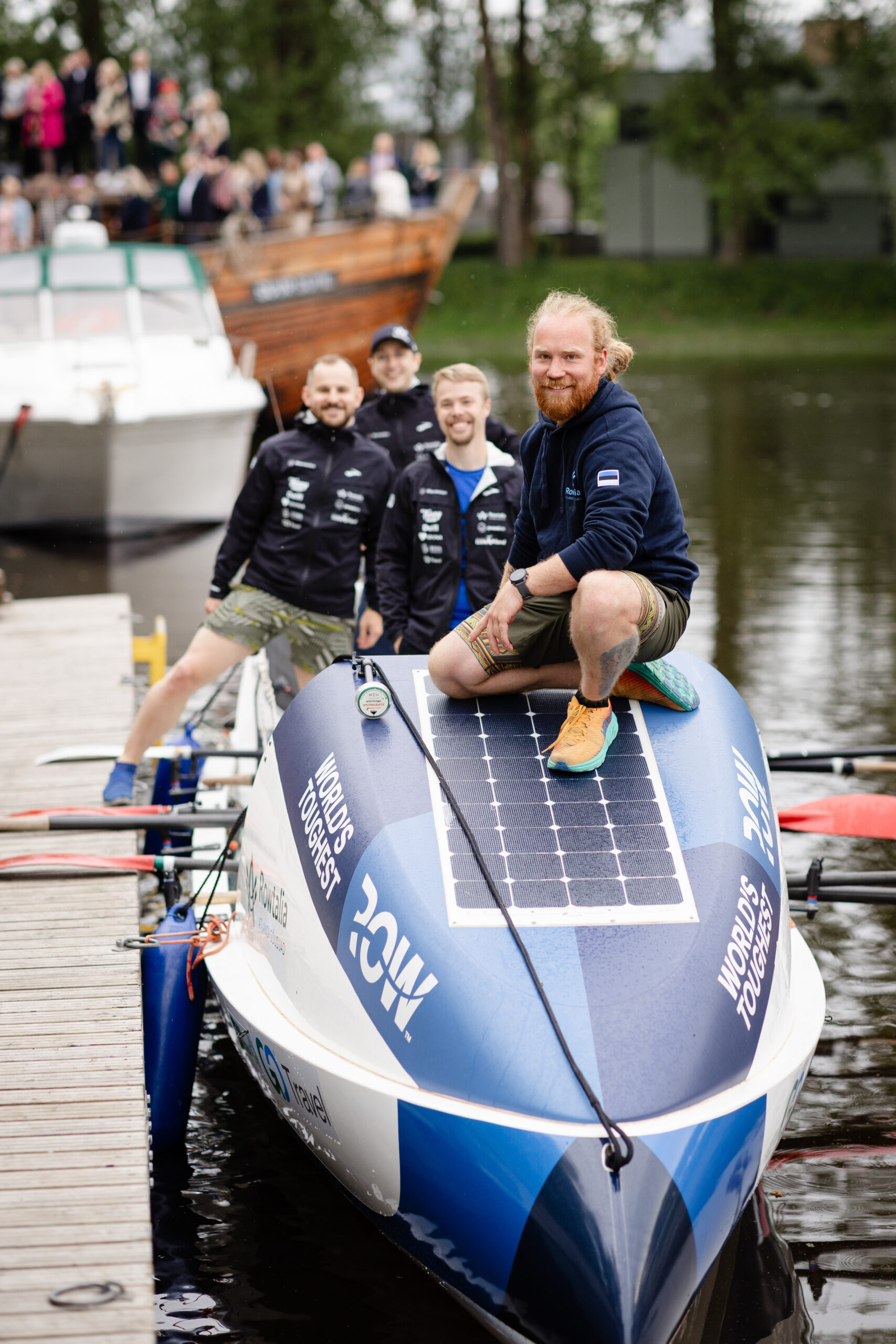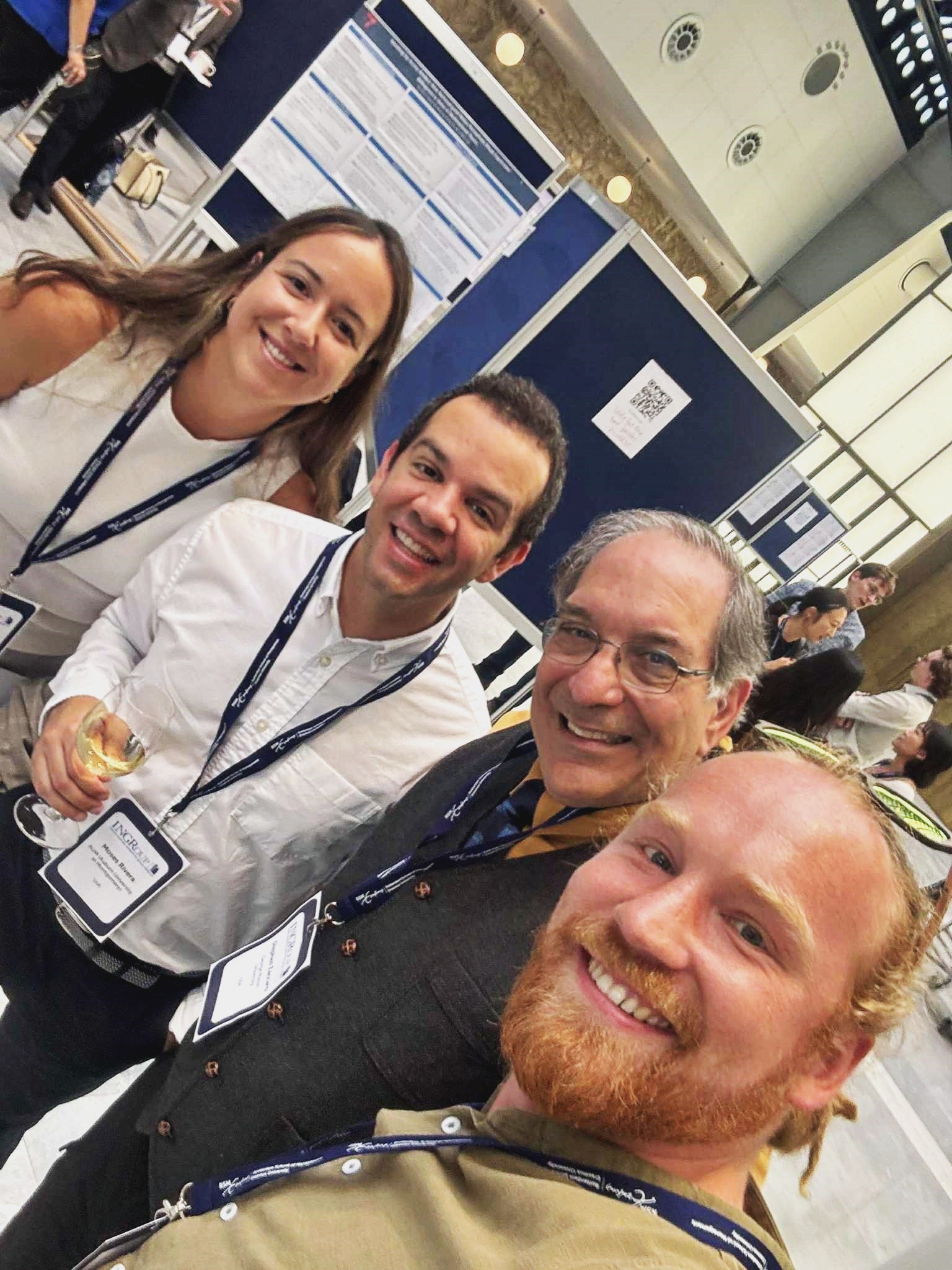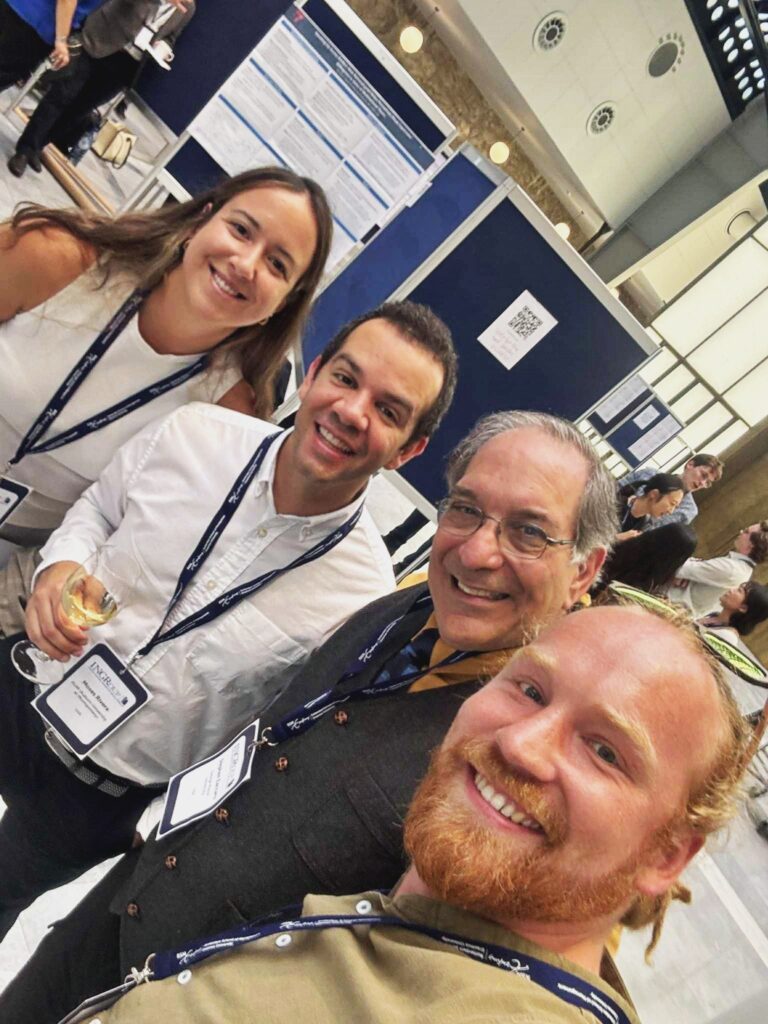
Krisztina and Andres meeting up with teamwork researches from other universities. From left: Krisztina Szabo (IST), Moses Rivera (Auburn University at Montgomery), Stephen Zaccaro (George Mason University), Andres Käosaar (IST)
Krisztina and Andres meeting up with teamwork researches from other universities. From left: Krisztina Szabo (IST), Moses Rivera (Auburn University at Montgomery), Stephen Zaccaro (George Mason University), Andres Käosaar (IST)
The expertise of our human and team performance researchers at IST was very well represented at the 2025 Interdisciplinary Network for Group Research Conference held recently in Rotterdam, the Netherlands.
IST Professors Shawn Burke, Ph.D., and Stephen Fiore, Ph.D., along with Post Doctoral Scholar Jessica Williams, Graduate Research Assistants Rhyse Bendell, Andres Kaosaar, Krisztina Szabo, and Graduate Student Researcher T’kara Mullins were all part of research presentations at the event.
Presentations included:
Practicing what we Preach: How to Apply Teamwork Research Knowledge to Our Own Research Teams (Symposium/Interactive Discussion)
Andres Käosaar1 , Stephen M. Fiore1, Catherine Gabelica2, Margo Janssens3, Kristine Lund4 1 University of Central Florida, USA; 2 IÉSEG School of Management, France; 3 Tilburg School of Social and Behavioral Sciences, Netherlands; 4 Ecole Normale Supérieure, France
Despite extensive research on teamwork, scientists studying these topics struggle to apply best practices in their own collaborative work. This interactive session explores challenges faced by teamwork researchers in practicing what they preach. Through discussion and reflection, we will identify practical solutions to bridge the research-practice gap in science teams.
The Social Equation: Maintaining Interpersonal Dynamics Through Key Competencies (Paper Session)
Krisztina Szabo1, Andres Kaosaar1, C. Shawn Burke1, Tripp Driskell2, James Driskell2 1 University of Central Florida, United States of America; 2 Florida Maxima
Within this paper, we outline a set of constructs that facilitate the recognition and response to shifts in interpersonal dynamics in teams. Additionally, we propose a unifying tripartite training structure of the Detect, Integrate, and React (DIR) countermeasure concept for enhancing social resilience in teams.
Pushing Human-AI Teams to New Heights: Advancing Collaboration Across Domains (Symposium/Interactive Discussion)
David E. Moore1, Susannah B.F. Paletz6, Marlee E. Johnson1, Alexandria N. Wentworth1, Laura Bauer2, Joshua Pearman2, Emily Gerkin2, Lauren Landon3, Marissa L. Shuffler1, Dorothy Carter2, Mark A. Clark4, Daniel Graff5, Aimée A. Kane7, Madeline Diep8, Adam Porter9, Stephen M. Fiore10, Rhyse Bendell10, Jessica Williams10 1 Clemson University; 2 Michigan State University; 3 KBR, Inc.; National Aeronautics and Space Administration; 4 American University; 5 Tongji University; 6 College of Information, University of Maryland, College Park; 7 School of Business, Duquesne University; 8 Fraunhofer USA Center MidAtlantic; 9 Department of Computer Science, University of Maryland, College Park; Fraunhofer USA Center Mid-Atlantic; 10University of Central Florida
This symposium presents theoretical and empirical insights into the integration of artificial intelligence (AI) in helping teams in diverse contexts. Topics covered include long-distance space exploration (LDSE), intelligence analysis, design consultancy, and artificial social intelligence. This symposium offers valuable perspectives by addressing both the opportunities and challenges of human-AI teaming.
Leveraging the Predictive Power of Team Heart Rate Synchronization Through Nonlinear Dynamics (paper session)
T’kara Lynn Mullins, Andres Käosaar University of Central Florida, United States of America
Team performance in Isolated, Confined, and Extreme (ICE) environments relies on coordination. This study examined heart rate synchronization during space analog missions. Lower synchronization predicted increased stress, while higher synchronization predicted reduced positive emotions. Findings suggest physiological synchrony reflects functional coordination, emphasizing its role in teamwork under high-stress conditions.
Testing Team Toughness: Examining the Influence of Adversity Characteristics on Team Processes and Performance (paper session)
Krisztina Szabo, C. Shawn Burke, Sara Willox University of Central Florida, United States of America
Drawing from the Event System Theory, we examined the influence of adversity characteristics on team processes and team performance in the context of a longitudinal study.
Team Interventions Grounded in Evidence: Doing the Hard Work to Ensure that It Works (symposium with interactive discussion)
Lauren Blackwell Landon1, Andres Käosaar2, Susannah Paletz3, Marlee Johnson4 1 KBR, NASA Johnson Space Center; 2 University of Central Florida; 3 University of Maryland; 4 Clemson University
We explore a set of research methods aimed at understanding and developing countermeasures for team dynamics in extreme environments. Researchers present findings from space analogs, Antarctic stations, submarines, and NASA’s Mission Control, offering insights into psychological safety, multiteam coordination, and emotional dynamics. Discussions will highlight practical app
Recent Articles
Be Informed
Stay Connected
By signing up, you consent to receive emails from us. Your information will be kept confidential and will not be shared with third parties.

